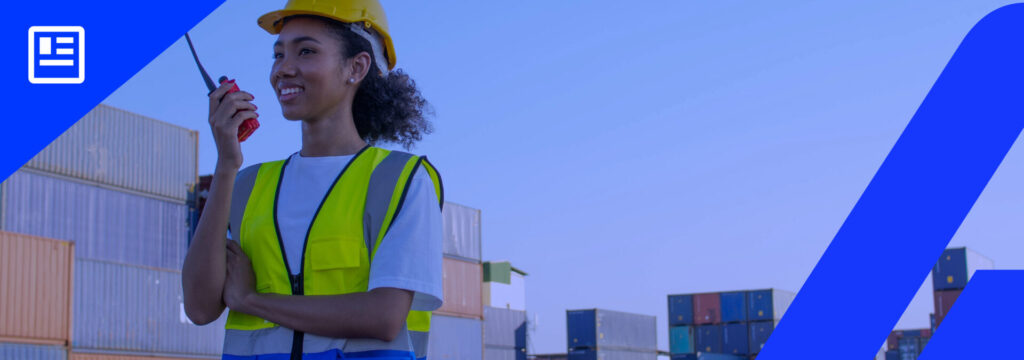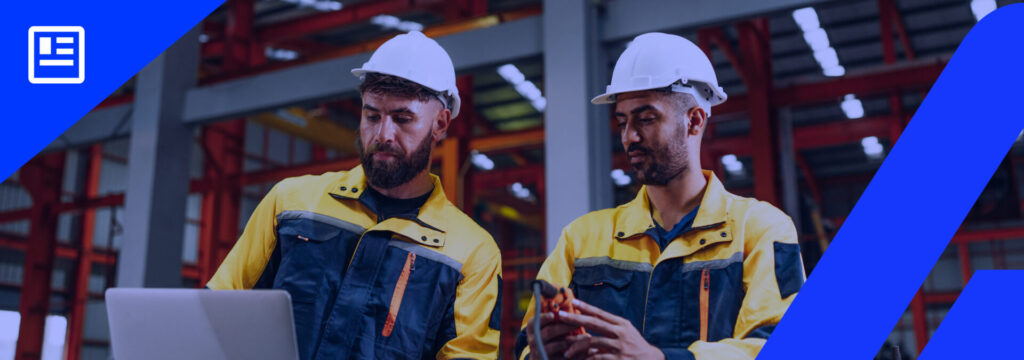AThe Single Import Declaration (DUIMP) is transforming the way companies conduct their foreign trade operations.
With the aim of modernizing and simplifying processes, it brings significant changes to the industry, from reducing deadlines to greater integration between systems.
But what exactly will change?
Throughout this article, you will understand the impacts of DUIMP on the industry, from the replacement of NCM Highlights and Ex-Tariffs for imports to the new requirements for the Product Catalog.
In addition, we will see how industries can prepare for this new reality, ensuring compliance with the new legal obligation, greater efficiency and competitiveness in the market.
After all, being ready for change is not just an advantage, it is a necessity.
What is DUIMP?
DUIMP (Single Import Declaration) is a new import registration model in Brazil, which is part of the Single Foreign Trade Portal Program (PUCOMEX), developed by the Federal Government to modernize and streamline foreign trade operations.
It is an electronic document that gathers essential information about an import, such as administrative, fiscal, commercial, financial, customs and tax data.
This new declaration will replace old documents, such as the Import Declaration (DI) and the Import License (LI), unifying information and making processes more efficient.
When will DUIMP be implemented?
According to the Ministry of Finance, DUIMP began to be implemented on a mandatory basis in October 2024 and is being carried out gradually, with the following forecast:
First Phase (October to December 2024): Includes maritime operations without approval and under specific regimes.
Second Phase (First half of 2025): Expansion to air operations and those subject to administrative control, including regimes such as Drawback.
Third Phase (Second half of 2025): Coverage of land operations and imports carried out under the Manaus Free Trade Zone regime.
The forecast is that, by the end of 2025, all import operations will be integrated into the new DUIMP system, completely replacing previous declarations, but for those who work in Comex in Brazil, they know that due to history, it is likely that this schedule will be extended, although there is still no official information from the Brazilian Federal Revenue Service (RFB) or Serpro, responsible for the PUCOMEX systems.

What Will Change With DUIMP?
The Single Import Declaration is available on the Single Foreign Trade Portal (Siscomex) and will bring important changes to Brazilian industries.
The main objective of DUIMP is to reduce import time and costs, making Brazil more competitive in international trade.
With this modernization, the expectation is that the average time for customs clearance will drop significantly, benefiting industries that depend on imported inputs.
According to Tatiana Prazeres, Secretary of Foreign Trade at MDIC, the implementation of DUIMP simplifies processes, contributes to the fight against illegal practices and reduces costs for importers.
Currently, the average time for releasing imported goods in Brazil is nine days. With the digitalization of processes, this time can be reduced to five days, allowing products to reach the market faster and reducing logistics costs.
According to Alexandre Gera, CEO of DigiComex, technology is one of the main changes added to DUIMP, in addition to the process involving the import of products, allowing the government to have more detailed information and greater control over inputs.
If your company imports products, it is essential to prepare for this change and understand how to optimize processes. Check out the table below with the main impacts of DUIMP:
| Impacts | Change |
| Early registration | The DUIMP can be registered before the cargo arrives in Brazil, allowing greater predictability and speed in customs clearance. |
| Product Catalog | Companies will need to register detailed information about imported products in advance, avoiding rework and facilitating analysis by the Federal Revenue Service. |
| Unified Payment Management | Tax collection will be centralized, reducing bureaucracy and facilitating tax verification. |
| Greater Integration with Other Agencies | More transparent import control, as agencies such as Anvisa and Inmetro will have direct access to information, eliminating the need for parallel documents. |
| Authorized Economic Operator (AEO) | Companies certified as AEO Level 2 will have significant benefits in customs clearance, such as faster customs clearance |
DUIMP and Product Catalogue
DUIMP and the Product Catalogue are directly linked, as the catalogue is one of the main pillars of the new form of importing in Brazil.
But what is the Product Catalogue?
It is an electronic registry where importers must previously register all detailed information about the products they intend to import.
This registration is mandatory for issuing the DUIMP and will serve as a standardized database.
In this way, the company needs to have the products registered in the Catalogue, ensuring that all information is organized and accessible to the inspection agencies, before filing the declaration.
Product registration will facilitate the completion of the DUIMP, as the information will already be in the system, reducing manual errors and allowing for faster clearance.
In addition, the standardization of product descriptions will facilitate analysis by agencies such as Anvisa, Mapa and Inmetro, reducing inconsistencies and additional requirements.
By correctly registering products, the company reduces the risk of penalties and tax inconsistencies, ensuring greater compliance with Federal Revenue regulations.

Main Challenges of DUIMP for Industries
The implementation of DUIMP brings several benefits to foreign trade, but it also poses challenges for companies that need to adapt to the new model.
Understand the main challenges below:
Adaptation to New Processes
Companies will need to review their processes, train teams and update their internal systems to operate in accordance with the new DUIMP requirements.
In addition to requiring that the classified NCMs and their respective mandatory data be 100% accurate among importing industries, Siscomex and Customs Brokerages and/or Logistics Operators.
Registration in the Product Catalog
It will be necessary to register each imported product in detail, demanding time and organization to ensure that all information is correct and up to date.
Within the Product Catalog registry, there are two critical points that companies need to pay attention to, which are:
- The challenge of converting the Highlights of the NCMs of the Ex-Tariffs of the Old DI to the DUIMP Attributes, maintaining the same range and predictability of tax payments;
- The detailed and exact identification of suppliers that are abroad (Exporters) for import processes, making imports even more difficult for industries that work with Trading Companies.
System Integration
DUIMP will require greater integration between companies’ internal systems and the Siscomex Single Portal. Industries will need to invest in technology to keep up with the changes.
Compliance and Standardization
Customs inspection will be more rigorous and automated. Errors in product registration, incorrect tax classification or flaws in documentation can generate penalties and delays.
Team Training
The foreign trade, logistics and tax sectors will need to understand the correct filling of information, deadlines and new rules for customs clearance.
4 Tips to Prepare Your Industry for DUIMP
Brazilian foreign trade is undergoing a major transformation with the arrival of DUIMP.
For the industry, this change represents both challenges and opportunities. Adapting to the new format requires planning, investment in technology and adjustments to internal processes.
Those who prepare in advance will come out ahead, ensuring a more efficient import flow that is less susceptible to delays.
Check out the five tips we have selected for your industry to better prepare for DUIMP:
Organize your industry’s Product Catalog
Alexandre Gera states that the best way for your company to be prepared for DUIMP is by taking a look at its import history and understanding which imports are recurring and which are one-off.
Review your company’s catalog; it should contain detailed information about each imported item, including technical description, tax classification (NCM), origin and specific attributes.
The more complete and correct the registration is, the lower the risk of problems with inspections.
Invest in digitalization and system integration
Check whether your management system is compatible with the new requirements and, if necessary, invest in upgrades or new technological solutions.
According to the CEO of DigiComex, it is vital to invest in technology at this time to keep up with the changes in DUIMP.
Train your foreign trade team
Provide internal training or seek specialized courses to ensure that your team is prepared for this transition.
It is essential that foreign trade, tax, logistics and financial teams are trained together with Customs Clearance Agents and/or Logistics Operators to meet the new rules and deadlines.
Monitor the implementation schedule
Pay attention to publications from the Federal Revenue Service and Siscomex to understand the deadlines and specific requirements of your operation.
As mentioned in the article, the migration to DUIMP is being done gradually. Monitoring each phase of the implementation will help your industry prepare without setbacks.
In addition to these valuable tips, we have put together a wealth of detailed material on the DUIMP steps, which is available on the Industry Portal.
How Can V-Comex Help Your Industry with DUIMP?
The transition to DUIMP may seem complex, but with the right technology, your company can gain efficiency and security in the import process.
V-Comex was developed to help industries adapt quickly, automating operations and ensuring total control over their imports.
- Intelligent registration and management of the Product Catalog
- Direct integration with the Siscomex Single Portal
- Faster and safer customs clearance
- Less bureaucracy and more predictability in tax management
Want to see in practice how V-Comex can help your industry? Talk to our experts and find out how we can make your operation more agile and efficient.












